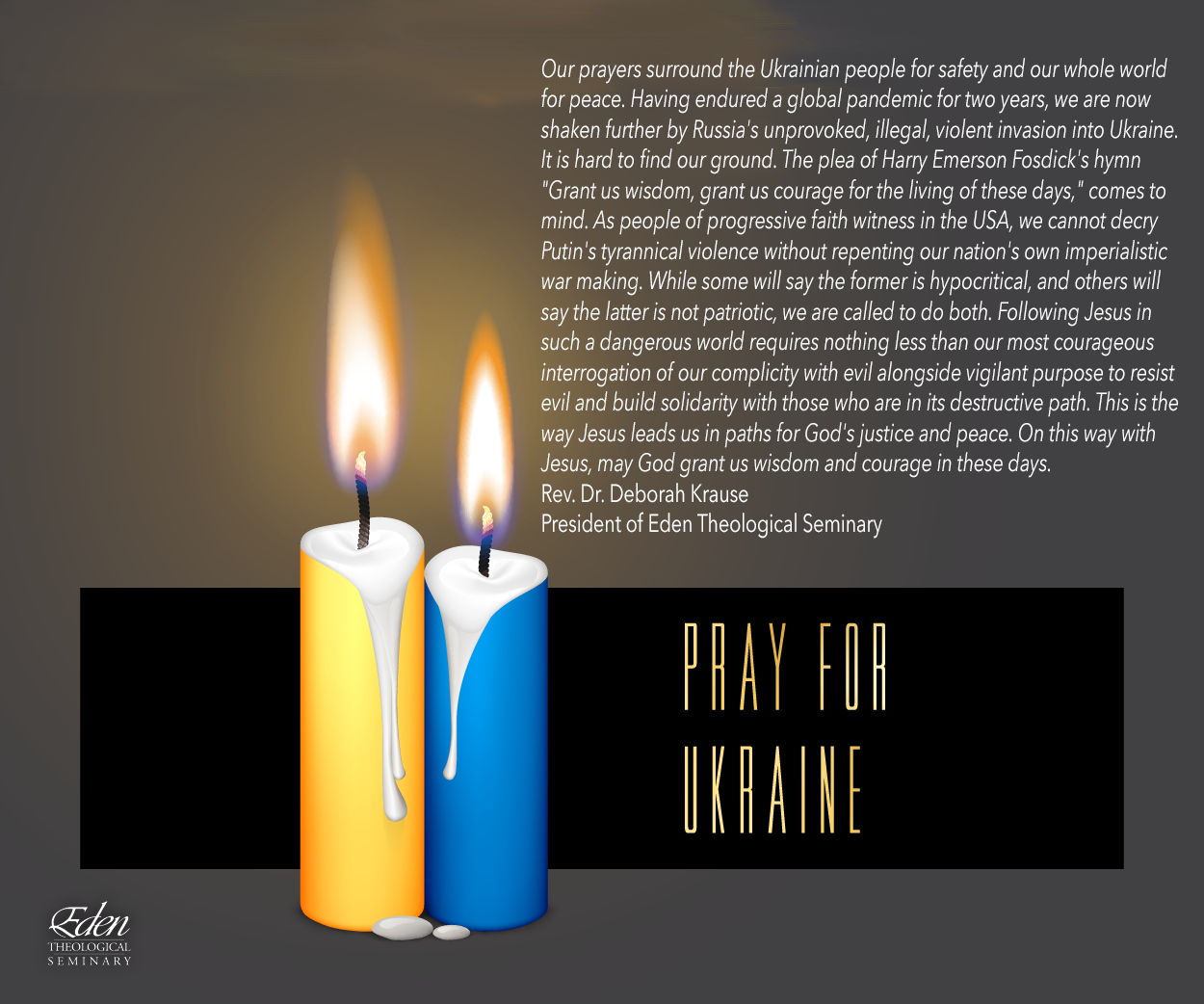Ukraine’s president, Volodymyr Zelensky, addressed the United States Congress on Wednesday, December 21st using language and concepts of “Just Peace.” President Zelensky’s Ten Point Peace Formula presented both to the U.S. Congress and to other world leaders at November’s G20 summit in Bali, incorporates the wholistic vision of “Just Peace” included in theologies of “Just Peace” for which Eden Seminary, our alumni, related churches and colleagues of multiple faiths are known.
The connection between “Just Peace theology” and the current conflict centered in Ukraine is particularly strong in this season of Christmas that highlights the hope of peace – “Peace with Justice.” One of our Eden Seminary alumni and retired minister in the United Church of Christ, Rev. Paul (Chip)Jahn, has a powerful story to tell of the efficacy of “Just Peace” and in particular how it helped broker a peace treaty in Sri Lanka between the government and Tamil Tigers and in how it impacts work against domestic abuse in the United States.
The term “Just Peace” was used first by the United Church of Christ that declared itself a “Just Peace” denomination after a group of Christian ethicists of many church traditions outlined a position of the deeper engagement needed to transform violent conflict into a sustainable just peace. Eden Seminary was at the forefront of this movement as then Professor Douglas Meeks helped write the original pronouncement voted on by the United Church of Christ General Synod in 1985.
“Just Peace” is more than a desired outcome for the conflict in the Ukraine. It is a new model many who are responsible for resolving violent conflict use to engage a series of practices developed in the early 1980s. It recognizes the old models of both pacifism and just war have been inadequate in either avoiding, limiting or resolving violent conflict. Rev. Jahn incorporates his experiences and more detail of a “Just Peace” model here. Read more . . . Just Peace Experiences


